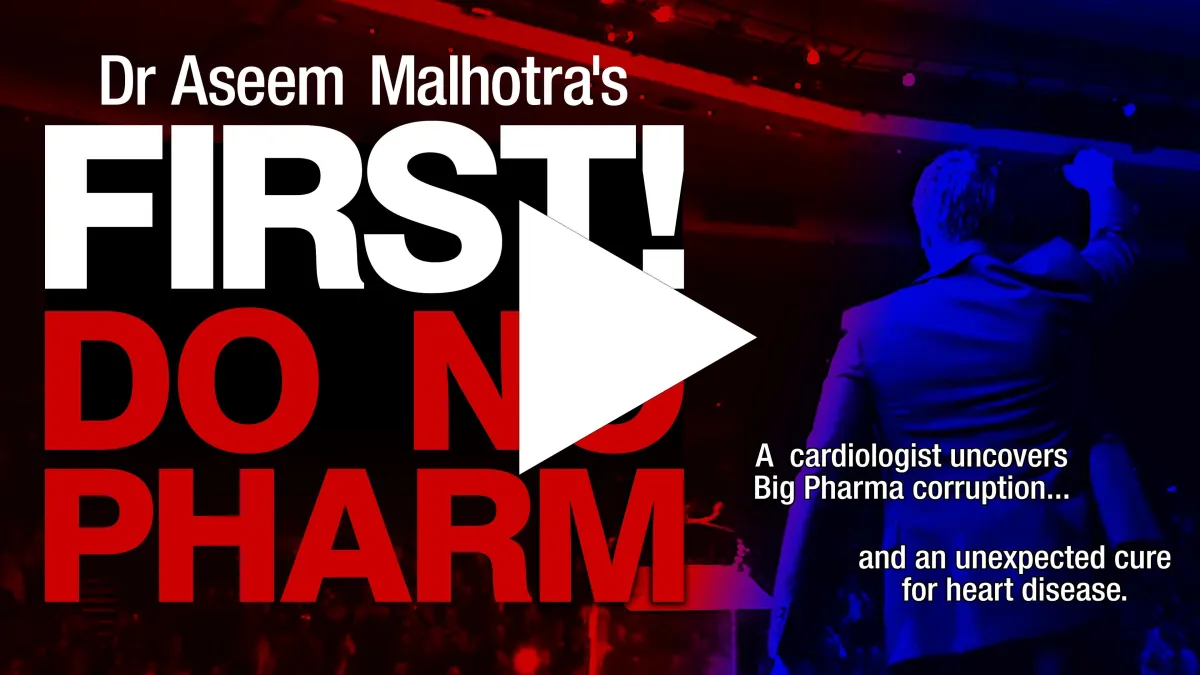
The Statin Deniers Trial
The Cholesterol Hypothesis: A Controversial Legacy Of Statins
The cholesterol hypothesis, which posits that high cholesterol levels cause heart disease, has been one of the most influential and contentious ideas in modern medicine. Despite decades of research and debate, this hypothesis remains deeply entrenched in medical practice and public health policy. However, a growing number of scientists and doctors have begun to question its validity, often facing severe backlash for their dissenting views.
The Origins and Impact of the Cholesterol Hypothesis
The idea that cholesterol causes heart disease gained traction in the mid-20th century and quickly became a cornerstone of cardiovascular medicine. This hypothesis led to the development of cholesterol-lowering drugs, most notably statins, which have become some of the most widely prescribed and profitable medications in history.
The pharmaceutical industry recognized the immense potential for profit in lowering cholesterol levels for millions of people worldwide. This financial incentive has played a significant role in promoting and defending the cholesterol hypothesis, even in the face of contradictory evidence.
Attacks on Dissenters
Those who have dared to question the cholesterol hypothesis have often faced severe consequences. Dr. Malcolm Kendrick, a prominent critic of the hypothesis, describes the predictable pattern of attacks on dissenters:
Accusations of spreading misinformation about cholesterol and statins
Claims that their actions have led to thousands of deaths
Comparisons to discredited figures like Andrew Wakefield
Personal and professional attacks
These attacks are not new. In the 1970s, John Yudkin, who suggested sugar as a probable cause of heart disease, faced similar treatment. He was uninvited from conferences, had his research omitted from publications, and was effectively silenced
The Role of Industry Funding
The influence of industry funding on medical research has been a significant concern. In the 1960s, the sugar industry paid scientists to downplay the role of sugar in heart disease and instead focus on dietary fat. More recently, companies like Kellogg's have funded research that undermines official warnings on obesity and sugar consumption
The Clinical Trial Service Unit at the University of Oxford, run by Professor Sir Rory Collins and Professor Colin Baigent, has received over £311 million in funding over the past 19 years, much of it from the pharmaceutical industry. While they insist this funding does not influence their research, critics argue that such massive financial ties inevitably create conflicts of interest.
The Mail on Sunday Controversy
In 2019, the Mail on Sunday published a series of articles attacking Dr. Malcolm Kendrick Zoë Harcombe, a nutritional scientist with a PhD, and cardiologist Dr Aseem Malhotra as "statin deniers."
These articles, described by the judge in a subsequent libel case as containing "knowingly false statements," accused the critics of causing harm on a scale worse than the MMR vaccine scandal.
The court case revealed that these articles were heavily influenced by prominent figures in the medical establishment, including Professor Sir Rory Collins. Emails showed that Collins and others had "a very significant (and in my judgment, undue) influence over the editorial process," according to the judge.
The Mail on Sunday since apologised and agreed to pay substantial libel damages.
The Corruption of Medical Research
The case of the cholesterol hypothesis highlights broader concerns about the corruption of medical research. Key issues include:
Industry funding of research, potentially biasing results
Attacks on scientists who question established theories
Media complicity in promoting industry-friendly narratives
Lack of transparency in research funding and conflicts of interest
Moving Forward: Addressing the Corruption
To address these issues and restore integrity to medical research, several steps are necessary:
Increased transparency: All funding sources and potential conflicts of interest should be clearly disclosed.
Independent research: More funding should be allocated for truly independent research, free from industry influence.
Protection for dissenters: Scientists who question established theories should be protected from personal and professional attacks.
Media responsibility: Journalists should be more critical of industry-funded research and give fair coverage to alternative viewpoints.
Reform of peer review: The peer review process should be reformed to reduce bias and increase transparency.
Public education: The public should be educated about the complexities of medical research and the potential for bias.
Conclusion
The story of the cholesterol hypothesis and its critics is a cautionary tale about the power of entrenched ideas in medicine and the influence of financial interests on scientific research. It underscores the need for constant skepticism and rigorous, independent investigation in medical science.As we move forward, it's crucial to create an environment where scientific debate can flourish without fear of retribution.
Only by encouraging open discussion and critical thinking can we hope to advance medical knowledge and improve public health.The cholesterol hypothesis may or may not stand the test of time, but the principles of scientific integrity and open inquiry must be upheld. As Dr. George Mann, a critic of the hypothesis, once said, "Future generations will look back at this present preoccupation with cholesterol with the same mixture of horror and incredulity with which we now regard colonic irrigation, bleeding and purging."
Whether he's right or not, we owe it to ourselves and future generations to ensure that medical science is guided by evidence and open debate, not by financial interests or dogma.
https://pressgazette.co.uk/media_law/mail-on-sunday-statins-libel-trial-matt-hancock/
https://drmalcolmkendrick.org/2024/10/30/the-legal-case-naming-a-few-names/
Exposing Pharmaceutical Industry Influence
"First! Do No Pharm" is a documentary that explores one doctor's fight against corporate greed in the pharmaceutical industry, particularly focusing on heart disease treatments . The film aims to present an alternative perspective on conventional medical approaches, highlighting an "ancient, life-changing solution" for heart disease.
This film represents a part of the broader conversation about transparency in medical research and the potential conflicts of interest in the healthcare industry, themes that resonate with the ongoing discussions surrounding the "Statin Deniers" trial and its implications for scientific debate.
https://nopharmfilm.com/

